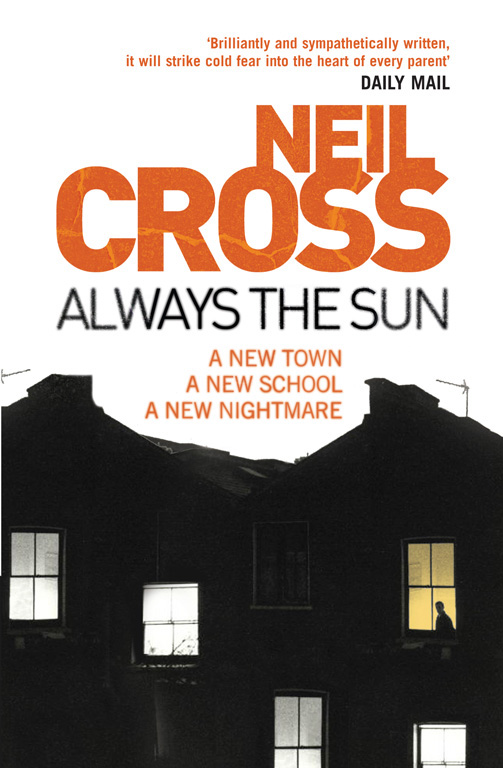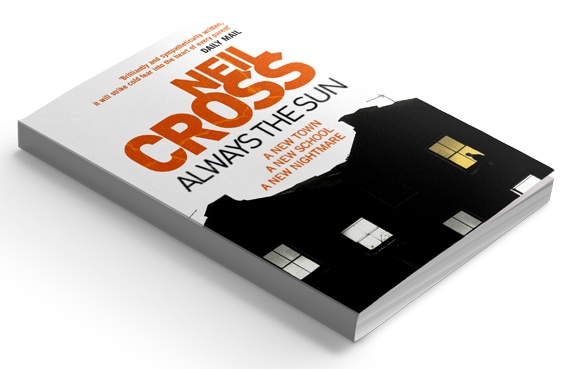Longlisted for the 2004 Man Booker Prize
‘Brilliantly and sympathetically written, it will strike a cold fear into the heart of every parent’
Daily Mail
‘Cross’s grimly readable novel settles into a parent’s nightmares and ties apprehensive knots in the reader’s stomach’
Guardian
‘This is a harrowing book about aggression, fear, the painful strength of parental love and the agony of being unable to shield your child from hurt. Brilliantly and sympathetically written, it will strike cold fear into the heart of every parent.’
Daily Mail
‘Set to be his most successful yet . . . harrowing but gripping’
Time Out
‘A meaty, tautly drawn tale that is both making and darkly powerful’
Glasgow Herald
‘The stripped-down prose of Neil Cross is at once masterly, authoritative and tender throughout this superb and difficult novel. Outstanding’
Big Issue
‘Magnificent’
Tibor Fischer
‘The novel is reminiscent of Peckinpah’s Straw Dogs. But rather than sexual inadequacy, it is feelings of parental inadequacy, compounded by grief, isolation and the loneliness which must be felt by every parent whose only child has just become an uncommunicative teenager, which provoke an intelligent man to commit senseless violence.’
Independent on Sunday
‘Gripping, even in the last 50 pages, where what starts out as a recognizable, everyday situation finally goes over the top…"
Guardian
‘A gripping journey to the limits of paternal emotions.
Mail on Sunday
NZ Listener: interview
Sam steered the dirty-white hire van to the nearside kerb and killed the engine.
It was the last week of June, two days before Jamie’s thirteenth birthday. For a while, they sat motionless and silent, listening to the slow tick of the engine. Then they exchanged a guarded, excited glance and raced each other to get out first.
The driver’s door was dented and obstinate; Sam forced it with his shoulder, but he was too late. Jamie was already waiting on the kerb. Sam ambled over to join him. He laid a hand on Jamie’s shoulder and together they looked at their new house.
A year after Nadya and I married, our first son was born.
I was besotted. I also fixated on his fragility — and on what the world would do to him, if the world were given half a chance. The ferocity of the joy I took in his birth, in the awesome fact of his existence, was attended by a kind of terror. It wasn’t a dignifying feeling.
I wanted to protect him beyond my ability to do so. I wanted to kill anyone who hurt him. I wanted someone to try hurting him in order that I could kill them.
I woke in the night choking on thoughts of sudden death; not because I feared it for myself, but because I couldn’t bear to think of leaving my wife and my son alone and unprotected. I secreted weapons throughout the house, began carrying them in street.
A few weeks after his first birthday we visited New Zealand, staying with Nadya’s family in Wellington. We spent a week in the Marlborough Sounds, then New Year’s Eve with friends in Auckland. When I opened my eyes on New Year’s day, a story flooded in like daylight.
Normally, my ideas are tenuous and hazy things; bits of this, bits of that. But this idea came whole, with the clarity of a well-remembered song. I knew the first sentence and I knew the last.
It was an idea about a good and gentle man who learns that his precious, damaged child is being bullied – and the steps he takes to put an end to it. Domestic drama to psychological horror; a tender book, and a frightening one. I began writing as soon as we got back to London. It came in a white heat, like an act of possession.
Most of the reviews were very good — a minority were savage; the first really bad reviews I ever got. This was especially true in New Zealand, where I’d conceived the story and which I’d since made my home…and where the novel being longlisted for the Man Booker prize was a news story.


US Edition: Open Road Media (December 2014)

